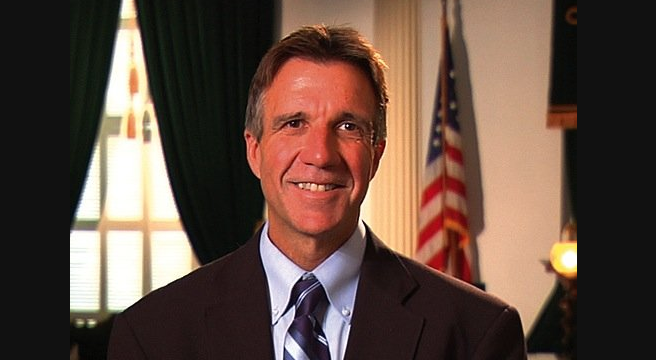By Jon Street | Watchdog.org
BURLINGTON — Prominent members of his own party wonder why, after more than 2 1/2 years, Republican Lt. Gov. Phil Scott refuses to take a position on the state’s single-payer health-care law.
Scott said he remains “skeptical.”
In an interview with Vermont Watchdog, that’s the best Scott could offer as the state moves to implement the first-of-its kind law. Scott maintains there isn’t enough information yet to know how much it would cost, how it will be paid for, what it will look like or what it will cover in terms of health services.
“I’m a skeptic when it comes to the single-payer model,” Scott told Watchdog, “but at the same time I try to be objective because I’ve argued that I don’t have enough information to know whether it works here in Vermont. So it’s difficult for me to oppose something when I don’t know what it is,” said Scott.
While passed in 2011, Vermont’s single-payer plan, Green Mountain Care, needs federal approval of its health care exchange to be eligible for federal funding needed to run the program. Green Mountain care might not get off the ground until 2017.
Green Mountain Care aims to provide health coverage to each of the state’s 626,000 residents through a state-run unified health-care system, which, proponents say, would dramatically reduce premiums because of less expensive administrative costs for private insurers.
Republican Randy Brock, a former state senator, state auditor, and nominee for governor, said ample information is available to judge that a single-payer system would be bad for Vermont.
Single-payer will jeopardize jobs by discouraging self-insured employers from either coming to or staying in Vermont because of higher taxes. It would encourage medical professionals to leave the state, discourage medical innovation by eliminating the competition, prohibit Vermonters from choosing their own health plans and rely on a state agency he says has already proven itself incapable of implementation.
“It would not decrease cost, as the administration now admits,” Brock said. “It would result in crippling tax increases and recent studies have confirmed its high cost.”
And Darcie Johnston, president and founder of Vermonters for Health Care Freedom, says single-pay health-care will be responsible for the largest tax increase in Vermont history.
“I think Lt. Gov. Scott is very confused on the Republican principles with regard to government-run, socialized health care, “Johnston said.
An independent report published by the Washington, D.C.-based consulting firm, Avalere Health, suggests a single-payer system would likely cause an increase in the size of government, resulting in new or increased taxes.
Avalere’s report suggests the cost for a single-payer system could be anywhere from $1.61 billion to $2.22 billion. The report points out the amount is comparable to the state’s tax collections from all sources today.
Some of the new tax burden, according to the report, would be offset by the elimination of direct costs for private health coverage, since the government expects to become the health insurer for most residents.
Sen. Bobby Starr, a Democrat who voted against a single-payer system, said even these offsets would not be enough to pay for the health-care overhaul.
“There’s no way we can do it without new taxes … There’s no way possible of generating that kind of money from the existing money as far as I’m concerned,” said Starr.
Meanwhile, the uncertainty generated by the law and its delays is already putting Vermonters at an economic disadvantage, Johnston said. It is this uncertainty Scott said is one of the reasons he remains skeptical.
“My fear is, in many regards, is if we have something that’s so unique that it puts us at a disadvantage from the states around us from a business standpoint,” Scott said. “I want to be sure that we don’t suffer.”
Contact Jon Street at jstreet@watchdog.org

